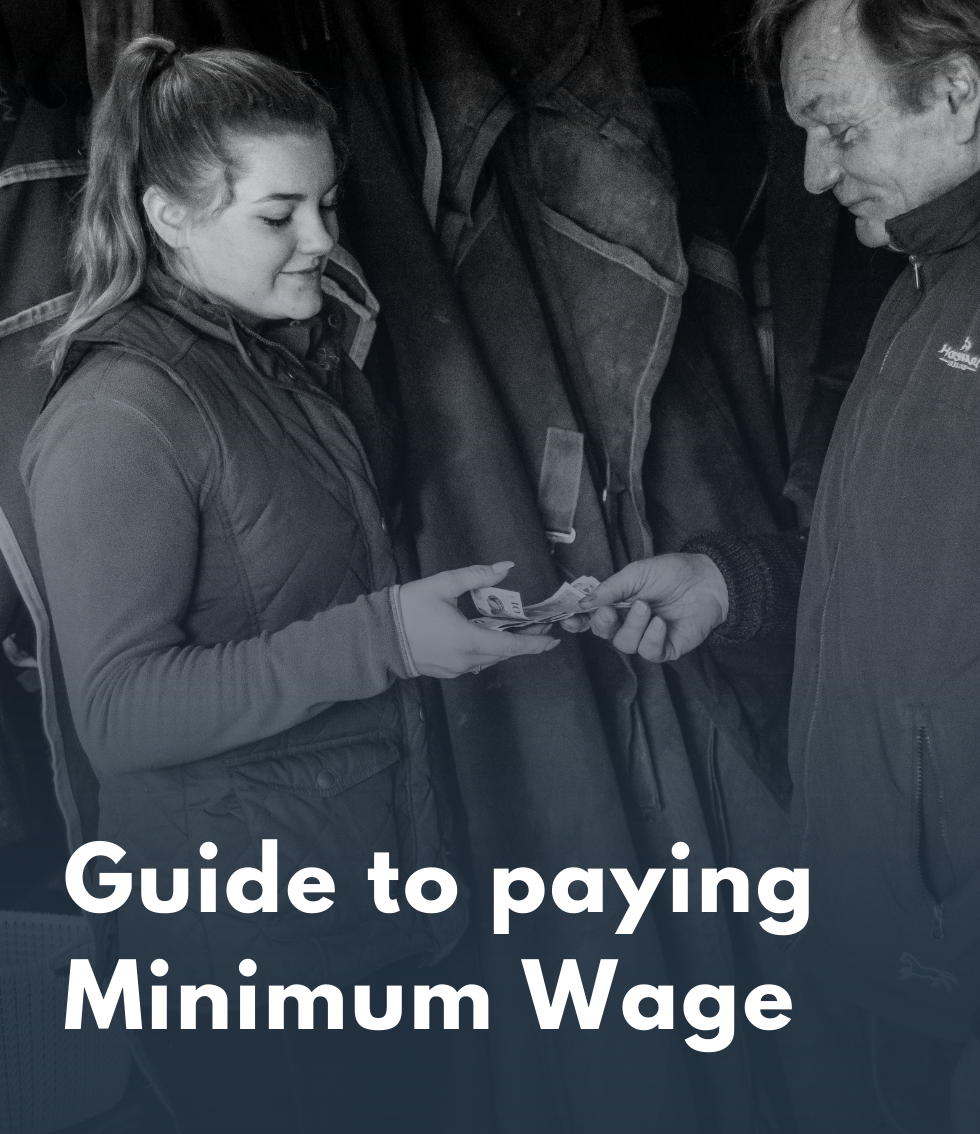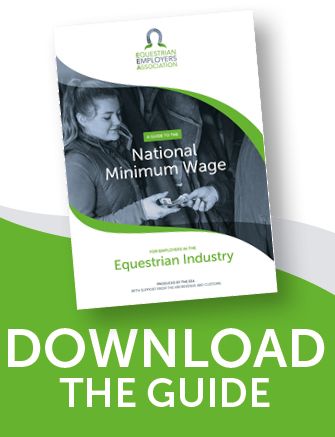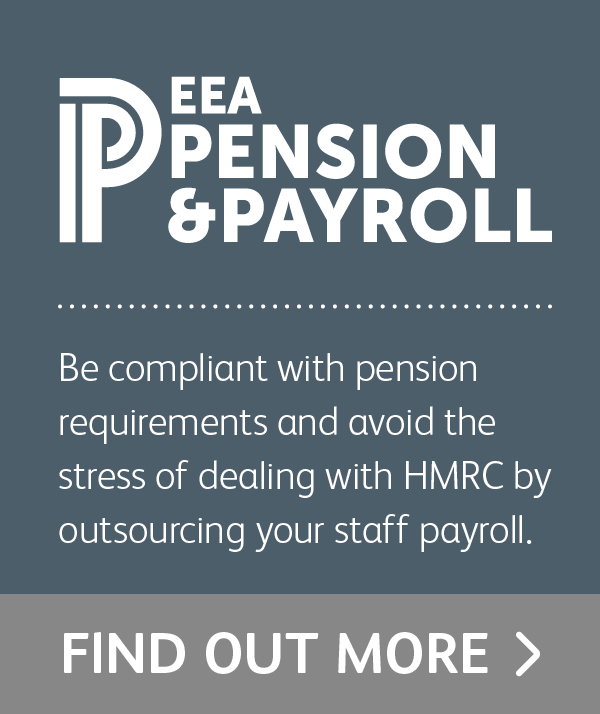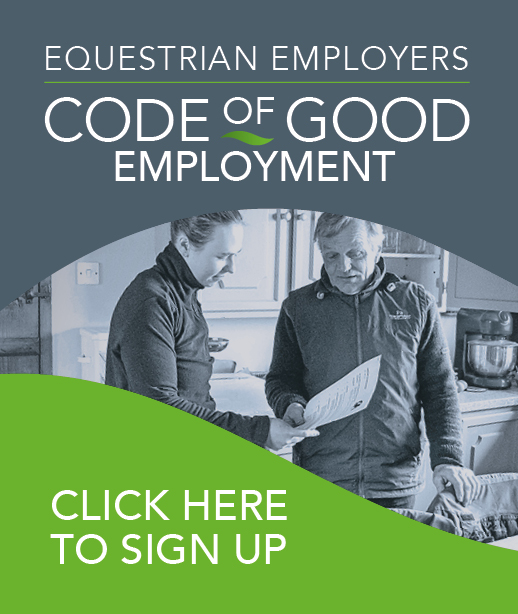- Join Us
- Login
- EEA ToolKit
- Employment Essentials
- Frequently asked
- Contracts and wages
- Time off work & absence
- Staff management & training
- Workplace disputes
- Dismissals and resignations
- Pregnancy and children
- Avoiding discrimination
- Redundancy and Retirement
- Other responsibilities
- Legal Helpline
- Recruitment
- Good Recruitment
- New starters
- Find a groom
- Good Employment
- Resources
- Downloads Library
- EEA Pension & Payroll
- Safe workplace
- Employers Minds
- Transporting horses
- Riding Establishment Licences
- Member discounts
- Business Hub
- Equestrian businesses
- The business plan
- Business compliance
- My clients
- Livery Contract Creator
- Financial matters
- Business challenges
- Marketing
- The EEA
- Employers Life
- Contact


EEA guide to the National Minimum Wage
This guide has been produced by the Equestrian Employers Association, with support from the HM Revenues and Customs, to help employers better understand National Minimum Wage with a view to encouraging better compliance with the legislation.
This guide advises on:
- The different rates
- Who is responsible for paying the National Minimum Wage
- Sounds simple, doesn't it?
- The five most common mistakes
- Minimum Wage and the Equestrian Sector
- Current rates
- Frequently asked questions
For more information and to discuss your staff's earnings, join the Equestrian Employers Association for just £49.50.
The different rates
There are different National Minimum Wage (NMW) rates depending on the worker’s age and whether they are an apprentice.
The National Living Wage (NLW) is the highest of the rates and it is simply the term that applies to workers aged 23 and over. (This age changed from 25 years old on 1st April 2021)
In this guide, the phrase ‘minimum wage’ is used to include both the National Minimum Wage and the National Living Wage.
Who is responsible for paying the National Minimum Wage?
The law says that as an employer you must pay the National Minimum Wage and National Living Wage at the right rate.
Sounds simple doesn’t it?
It’s not as simple as it sounds.
There are a number of pitfalls that employers can fall foul of and the costs of getting it wrong are high.
Whenever underpayment occurs, in addition to having to pay the affected workers the arrears due, there is also a penalty for the employer to pay which is up to 200% of the arrears owed.
| If the arrears are in excess of £100 then the employer will be publicly named and shamed in a government press release. |
It is important that you do not leave this to your accountant, if you have one, as it is your responsibility and it is you as the employer that will be liable.
Watch this helpful video to learn how to calculate the NMW and what overtime is:
The five most common mistakes employers make:
1. Entitlement errors
Common errors relate to:
- Employers treating individuals as self-employed when they are actually a ‘worker’ and therefore entitled to minimum wage, and
- Labelling individuals as ‘interns’ (or using other such terminology) in order to avoid the minimum wage having to be paid.
A. Worker or self-employed?
Almost all ‘workers’ are entitled to the minimum wage but self-employed people running a business on their own account aren’t. Some employers struggle to correctly decide if an individual is a ‘worker’ or not for the purposes of the minimum wage.
To help you decide, an individual is a ‘worker’ who is entitled to the minimum wage if all of the following apply:
- they have a contract or other arrangement with the business which entitles them to a reward. The contract doesn’t have to be written – it can be oral or implied.
- the reward is a monetary payment or benefit in kind and is not simply the reimbursement of genuine ‘out-of-pocket’ expenses. The promise of a contract or future work could be considered a benefit in kind.
- they have to turn up for work even if they don't wish to.
- the employer has to provide work for them to do for the duration of the contract or arrangement.
- they have to perform the work or services personally and only have a limited right to send a substitute.
- they are not genuinely self-employed. Calling themselves ‘self-employed’ or being referred to as ‘self-employed’ in agreements, doesn’t necessarily mean that they are not entitled to the minimum wage. Similarly, being registered as self-employed for tax purposes does not necessarily make them self-employed for minimum wage purposes.
Further information can be found here.
B. Interns/Working Pupil
The term ‘intern’/'working pupil' has no legal status under minimum wage law.
Entitlement to the minimum wage does not depend on what someone is called, the type of work they do or how the work is described (such as ‘unpaid’ or ‘expenses only’). What matters is whether the agreement or arrangement they have with you, as an employer, makes them a worker for minimum wage purposes.
Employers can’t avoid paying the National Minimum Wage if it’s due by:
- saying or stating that it doesn’t apply, or
- making a written agreement saying someone isn’t a worker or that they’re an intern.
Some forms of work experience (sometimes called placements or internships) may be referred to as ‘unpaid work’ or ‘expenses only’, where someone gives their services free of charge in order to develop or maintain their skills.
Employers offering such positions should check if the person is a volunteer for minimum wage purposes.
If the person is not a genuine volunteer, then you must pay them at least the minimum wage.
They are classed as doing voluntary work if they can only get certain limited benefits (for example reasonable travel or lunch expenses) and they are working for a:
- charity
- voluntary organisation or associated fund-raising body
- statutory body
Further information can be found here.
C. Volunteers
They are classed as doing voluntary work if they can only get certain limited benefits (for example reasonable travel or lunch expenses) and they are working for a:
- charity
- voluntary organisation or associated fund-raising body
- statutory body
Further information can be found here.
2. Paying workers below minimum wage
Common errors relate to:
- Failure to implement the annual rate increases for the National Minimum Wage which take place each year in April. By doing nothing an employer can lapse into non-compliance.
- Employers miss the key birthdays [18, 21 and 23 years old] when a worker moves from one age band to another but fails to increase their pay accordingly.
- Apprentice rate errors, particularly in relation to the fact that once the first year of an apprenticeship has been completed then that individual should be paid at the higher appropriate age-related rate if they are aged 19 years or over.
3. Deductions from pay and payments by workers that reduce the minimum wage
Certain deductions made by the employer from a worker’s pay, or payments made by the worker, reduce pay for minimum wage purposes. These can lead to a worker being underpaid.
Common errors relate to:
- Deductions or payments for items or expenses that are connected with the job. This could include, for example, safety clothing, uniforms, tools or other equipment needed for the job.
- Deductions for the employer’s own use or benefit, i.e., a deduction for meals or transport provided by you, the employer. It does not matter whether the worker can choose to buy the goods or services. You do not have to make a profit from such deductions for them to be for your own use and benefit. For example, if you provide transport at a loss, any deductions you make from wages for providing it help to reduce your loss. The amount you gain by making the deductions is deemed for your own use and benefit.
- Deductions or payments by the worker for accommodation. If you provide accommodation to a worker there may be an effect on minimum wage pay if the amount you charge for the accommodation is over a certain level.
4. Unpaid working time errors
Common errors relate to:
- Travelling time. Travelling in connection with a worker’s job is working time and should be included in minimum wage calculations accordingly. This includes travelling to competitions or training, but not between home and a permanent place of work.
- Training time. Time spent on training counts as working time.
- Unpaid time. This can often occur at the “bookends” of a worker’s shift when they may have to arrive early or stay late, for example, the groom might have to arrive 15 minutes early before their shift starts as travelling to a competition, or the yard manager might have to stay behind an additional 20 minutes to wait for the farrier to finish.
- Downtime at the employers' disposal. For example ‘on standby near the workplace, not working because of the horse's day off, or lorry breakdown but kept at the workplace, or waiting to receive a yard delivery.
5. Including elements of pay that don't count towards minimum wage
Some elements of pay don’t count towards the minimum wage. Sometimes employers include these elements so it appears that a worker is being paid the minimum wage when in actual fact they are not.
Common errors relate to:
- Tips and gratuities from customers don’t count towards minimum wage pay. This is regardless of whether they are paid through an employer’s payroll or are given direct to workers by customers/owners.
- Overtime and shift premia. Employers may pay a worker at a higher rate than their standard pay rate for some of the work they do, for example for working:
- overtime, weekend or night shifts,
- on bank holidays
- longer than a certain number of hours
However, the premium element of pay – that is, the amount the higher pay rate exceeds the worker’s basic rate by – does not count towards minimum wage pay.
National Minimum Wage and the equestrian sector
The list of employers named by the government for underpaying the minimum wage shows that underpayment is found in a variety of trade sectors.
|
The equestrian sector is not immune, in fact, there are a number of potential areas of risk of underpayment, including:
|
HM Revenue & Customs (HMRC) has investigated more than 70,000 employers for National Minimum Wage issues since the legislation was introduced and has the right to carry out checks at any time and ask to see any relevant records.
Successful enforcement of the National Minimum Wage and National Living Wage by HMRC helps to level the playing field, making sure unscrupulous employers aren’t advantaged.
What are the 2022/23 National Minimum Wage rates?
| 23 years+ | 21-22 | 18-20 | 16-17 | Apprentice* | Accommodation Offset |
| £9.50 | £9.18 | £6.83 | £4.81 | £4.81 | £8.70 per day |
*This rate is for apprentices under 19 or those in the first year of their apprenticeship
These rates change on the 1st April each year so remember to check that you are applying the most up to date rates.
View the current rates here.
Where can I find more information and get expert advice?
Gov.uk provides an overview of minimum wage and official guidance to help employers meet minimum wage legislation is available here.

Acas (Advisory, Conciliation and Arbitration Service) provides a free and impartial helpline for National Minimum Wage queries.
Telephone: 0300 123 1100 Monday to Friday: 8am to 6pm
What should I do if I’m paying at the wrong rate?
Put it right - identify any arrears you owe your workers, pay those arrears back to the workers and pay the correct rates going forward.
A failure to act runs the risk that one of your employees, or ex-employees, will report you to HMRC.
|
You will then be considered for investigation, which can result in penalties of up to £20,000 per underpaid worker. You may also be publicly named and shamed, which could have a significant impact on the reputation of your business. |
Download the document
Get the full document created by the EEA with the support from the HMRC Compliance Team.
This document has been produced for guidance purposes only and should not be used as a substitute for taking independent legal advice on specific issues or individual cases.
Frequently asked questions
It’s quite normal for grooms to work long hours, it’s the nature of the job – it’s a passion. Is minimum wage due for all those hours worked?
ANSWER : All working time must be paid for by the employer at the minimum wage rate or above.
For minimum wage purposes, there are four different types of work: time work, salaried hours work, output work and unmeasured work.
|
For all types of work, working time includes time spent:
|
|
For a working time, don’t include time spent:
|
DOES time spent travelling to a competition count as working time?
ANSWER: Yes, depending on where the journey starts.

For example, James works as a groom at XYZ Stables and this is his usual place of work. James’ employer often requires him to attend eventing competitions at the weekend and pays James for the time he works at these competitions but not for the time spent travelling to and from them.
James travels to and from these competitions with his employer in their horsebox, he starts and finishes his journey at the stables
If James were to travel directly from his home to the competition, this would not be working/travelling time because he would be travelling from his home to work (the place of work does not have to be a ‘usual’ place of work, it is where the employer expects him to be in order to start work).
However in this instance, and because James is travelling to XYZ Stables first (his usual place of work) in order to ride in his employers horsebox to the competitions, then the time spent travelling from the stables to the competitions (and back) would be classed as working time.
For a worker performing all types of work, the time when a worker is travelling for the purpose of working (i.e. in connection with the employment – travelling to competition or training etc.) is treated as working time.
For National Minimum Wage purposes, the travelling between a worker’s place of residence (including temporary residence) and the place of their work is not considered as travelling for the purposes of work.
Any time spent on such “home to work” travelling is not considered as working time and not treated as time worked.

Travelling time should not be adjusted on theories of alternate modes of transport or different routes to what actually occurred.
Neither should travelling time be calculated on the basis of optimal travelling conditions, such as computer-calculated planned routes, where such routes do not represent the actual circumstances of the travelling - weather conditions, traffic delays etc.
Actual hours must be recorded of the journey times.
Any time where a worker interrupts their travelling in order take a break during the course of their journey is not travelling time nor treated as working time.
However, it should be noted that periods of waiting during travelling, such as queuing traffic, waiting for transport connections, etc. are likely to be treated as time worked and not automatically assumed to be a time when a break is being taken.
The worker should be paid at least the minimum wage accordingly.
Can an employer make wage deductions for the stabling costs of a worker’s horse?
ANSWER: An employer can make deductions but they mustn’t result in a worker’s pay falling below the National Minimum Wage.

For example, Eric is a groom who works as an apprentice at XYZ Eventing. He stables his own horse at his employer’s yard under an arrangement at a cheaper rate than he could get independently at another yard.
His employer charges him £30 per week for stabling and feed and this is deducted from his pay each week.
As an apprentice Eric earns the apprentice minimum wage rate of £4.81 an hour for 30 hours a week (£144.30). The weekly £30 deduction reduces Eric’s pay for National Minimum Wage purposes because it is being made for the use and benefit of the employer.
Eric’s pay for minimum wage purposes has therefore been reduced down to £3.81 an hour (£114.30 divided by 30 hours).
He is being underpaid and his employer owes him pay arrears.
If Eric was to make payment to his employer for the employer provided livery costs, such as by cheque or standing order, then the payment will NOT reduce national minimum wage pay - provided it is not made in order to comply with a contractual requirement or any other requirement imposed upon him by his employer.
In these circumstances Eric would simply be purchasing goods and services from his employer after he has received his national minimum wage pay.
An invoice and/or receipt is recommended
Apprentices always get the apprentice rate of the national minimum wage – it’s as simple as that, isn’t it?
ANSWER: No, there are a number of conditions attached to being able to pay the apprentice rate.
The apprentice rate only applies if:
- The apprentice is aged under the age of 19, or;
- The apprentice is aged 19 or over and within their first year of the apprenticeship.
Once an apprentice aged 19 or over has completed the first year of the apprenticeship they must be paid the relevant higher National Minimum Wage rate for their age group.
Furthermore, for minimum wage purposes and for the apprentice rate to apply, the apprentice must be either:
- employed on a certain apprenticeship scheme, or
- engaged under a contract of apprenticeship
|
Generally speaking, an apprenticeship contract is a written contract that specifies:
Use the EEA Contract Creator to create your version. |
Ultimately it will be a matter for the courts or tribunals to decide whether or not a contract is an apprenticeship contract in the event of a dispute.
All apprenticeships must incorporate an element of structured training. This might include work-based training, a course of study or a combination of the two.

A worker whose sole purpose of their training is only to perform a specific job is unlikely to be considered an apprentice.
Remember apprentices must be paid at least the apprentice minimum wage for the time they spend training or studying as part of their apprenticeship, as well as the time they spend working.
Our livery yard operates with both people who are paid as well as working pupils/volunteers who are not. How do we decide if National Minimum Wage applies and if so, to whom?
ANSWER: If an individual is classified as a ‘worker’ for the purposes of the National Minimum Wage then they are entitled to the minimum wage, with some exceptions.
If all of the following apply then the individual is a ‘worker’ who is entitled to the National Minimum Wage:
- They have a contract or other arrangement with the organisation which entitles them to a reward. The contract does not have to be written: it may be implied (i.e. reflecting what happens in practice in the workplace) or oral (i.e. a spoken agreement of work in exchange for rewards).
- The reward is a monetary payment (i.e. cash or other forms of financial payment) or benefit in kind and is not simply the reimbursement of genuine ‘out-of-pocket’ expenses.
Whilst a reward would typically involve the employer incurring a cost, the promise of a contract or future work could be considered a benefit in kind. - They have to turn up for work even if they don't wish to.
- In deciding if someone had to turn up for work a tribunal would look at factors such as whether the business can impose sanctions on them for failing to work, the business grievance and disciplinary procedures, and whether the employee or the business are able to terminate the contract or arrangement by giving notice.
- The employer has to provide work to do for the duration of the contract or arrangement (this would be the case even if they were doing ‘casual work’ or had a ‘zero-hours contract).
- They have to perform the work or services personally and only have a limited right to send a substitute. Being allowed and able to delegate to another member of staff does not amount to substitution or subcontracting out the work for National Minimum Wage purposes.
- They are not genuinely self-employed.
Someone calling themself ‘self-employed’ or being referred to as ‘self-employed’ in agreements, does not necessarily mean that they are not entitled to the National Minimum Wage. Similarly, being registered as self-employed for tax purposes does not necessarily make them self-employed for National Minimum Wage purposes.
When doesn’t the minimum wage apply? The following are indicators that one is not entitled to the National Minimum Wage:
- They are a worker who is exempt from the National Minimum Wage by law.
A limited number of groups are classified as workers but are exempt from the NMW under NMW law. This includes students undertaking work experience for no more than one year as a required part of a UK higher or further education course, some participants in specified government work or training schemes and voluntary workers. Further details on exempt types of workers is available here. - They are performing work as a volunteer. In general, an individual working as a volunteer is someone who:
a. undertakes work for a particular business or charitable organisation for no financial reward or benefit, aside from reimbursement of out-of-pocket expenses
b. does not have to turn up for work if they don't want to. It is irrelevant whether the work is performed for altruistic or other reasons, e.g. to enhance the individual's CV.
A worker’s entitlement to the National Minimum Wage – and the employer’s liability to pay it – does not depend on the job title but on the contract or arrangement in place with the business.
I provide accommodation to my workers, how does that affect minimum wage?
ANSWER: Accommodation provided by an employer can be taken into account when calculating the National Minimum Wage. No other kind of company benefit (such as food, a car, childcare vouchers) counts towards the minimum wage.
Accommodation provided by you to the worker is the only benefit in kind that can count towards a worker's minimum wage pay.
You may:
- deduct rent from the worker's pay;
- charge a specific amount once the worker has received their pay; or
- provide accommodation on an uncharged basis as part of a package
In all these cases, the rules allow a notional daily amount called the accommodation offset to count towards minimum wage pay. View the current offset rate here.
Where you charge the worker for the accommodation, either by making a deduction from the worker's pay or by accepting a payment from the worker, the worker's minimum wage pay will only be affected if you charge more than the amount of the accommodation offset.
The amount of the charge over and above the level of the offset will reduce the worker's pay for minimum wage purposes.
|
The accommodation offset is intended to discourage employers from recouping the minimum wage paid to a worker by levying excessive accommodation charges. It doesn't seek to reflect the actual cost to you or the actual value of renting accommodation for the worker. |
Any additional charges the worker is obliged to pay as a condition of being provided with accommodation, including amounts for gas, electricity, water and provision of furniture, must be regarded as a charge paid in respect of the provision of accommodation.
Such charges should be taken into account when determining the total charge for accommodation, and when calculating the minimum wage under the accommodation offset rules.
The effect of accommodation rates on the minimum wage depends on how much an employer charges for accommodation.

It doesn’t matter if the cost of the accommodation is taken from the worker’s wages beforehand or if the worker pays the cost after they get their wages.
Worked examples of accommodation being provided above and below the maximum rate and for free are available here.
























-Small.jpg)



-Small.jpg)

